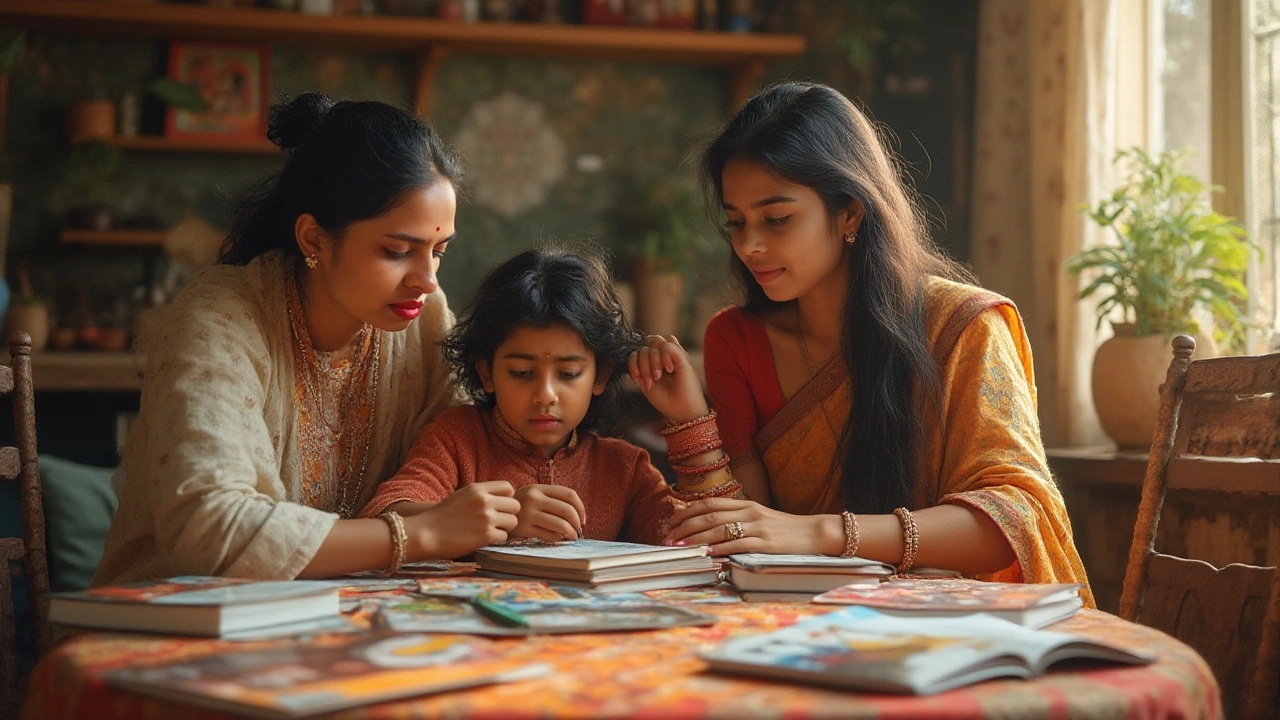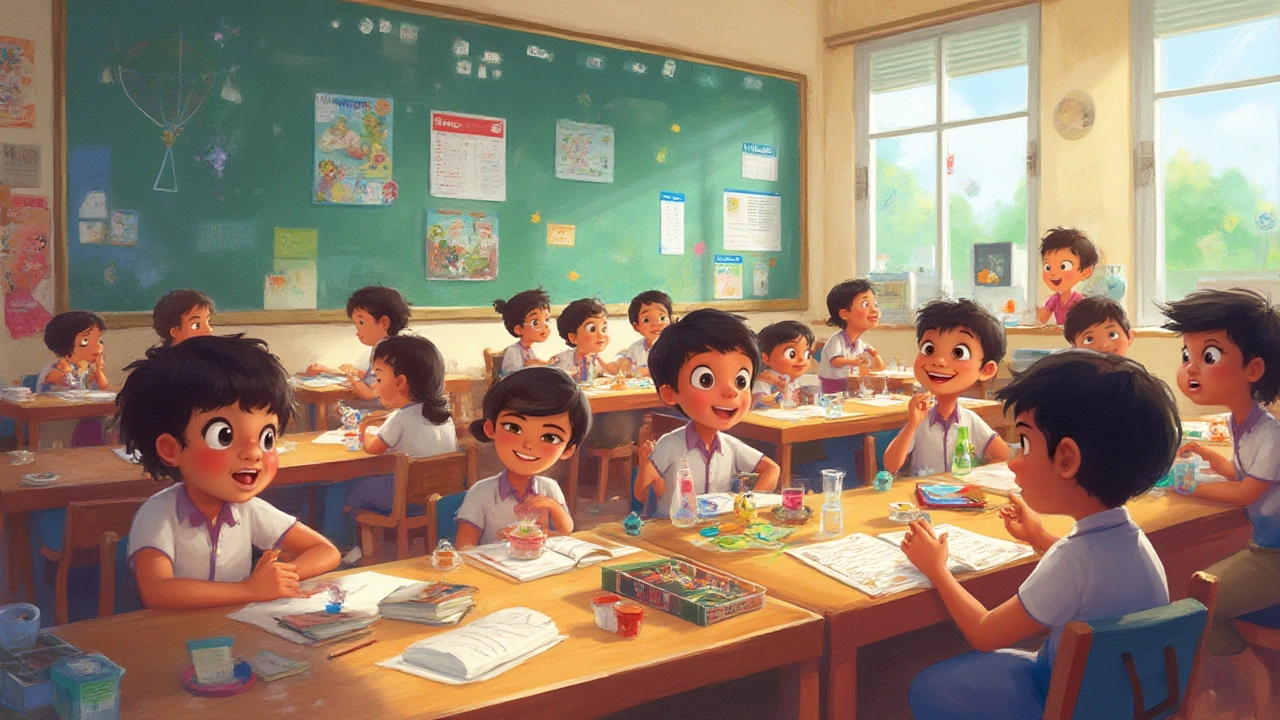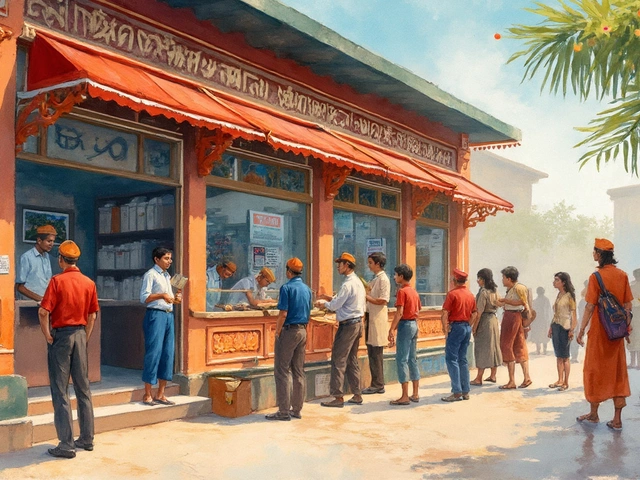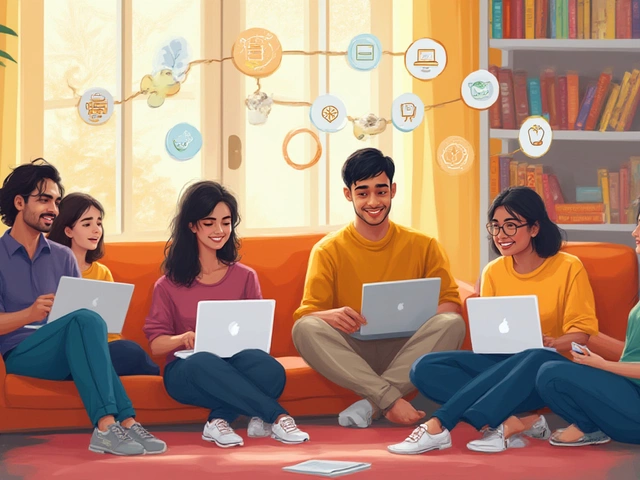
If you’re a parent today, you’ve probably had this conversation—sometimes late at night, sometimes over tea, maybe even after an exhausting round of parent-teacher meetings at school. “Which board will actually help my kid do well, not only in exams, but in life?” The debates about school boards in India—CBSE, ICSE, State Boards, IB—never end. And the stakes feel impossibly high. You look at the crowd, the toppers in the newspaper, success stories, toppled ranks, and the endless confusion triggered by exam season every summer. Should you play safe with numbers and go for CBSE for its familiarity and acceptance? Take a risk with IB for the global flair? Or maybe keep it close to home and pick the State Board because, as parents say, "It just makes sense." The answer isn’t a one-size-fits-all. But knowing how these boards work, what they REALLY focus on, and how your kid’s strengths mashup with their unique styles—that’s where the gold lies.
Understanding the Big Four: An Honest Look at India’s Top School Boards
Kids can spend more than a decade under the same board’s curriculum. The frameworks shape not just their grades, but how they think about problems, culture, even success. So, here’s a closer look, busted myths included.
- CBSE (Central Board of Secondary Education): CBSE sits at the centre of India’s national education scene. Currently, over 25,000 schools follow CBSE in India and 240+ abroad. The focus is straightforward—think logic, structure, and less pressure on mugging up. Subjects like Science and Maths are streamlined, making it good terrain for students aiming at national-level competitive exams like JEE and NEET. The board is notorious for keeping textbooks simple (hello, NCERT), and its teaching methods are fairly uniform—students from different corners of the country are likely to get the same kind of exam paper pattern and evaluation.
- ICSE (Indian Certificate of Secondary Education): ICSE, or the CISCE-affiliated schools, serve a smaller segment—about 2,300 schools. This board is famous for its wider subject choices (think Environmental Science in middle school, Literature over just Grammar), and a bigger focus on English. Assessment feels rigorous; students have to write longer, and there’s heavy emphasis on practicals/assignments. The coursework can feel a notch tougher to some, but the language skills gained here are usually unmatched. Fun fact: ICSE is recognised by universities overseas more readily than many boards in India.
- State Boards: Every state has its own education board—Maharashtra, Tamil Nadu, Karnataka, UP, and so on. These boards serve the biggest number of students (combined), but get flak for out-of-date syllabi or inconsistent standards. However, they also give kids an education in their local language, and sometimes let kids choose from different streams (vocational, arts, etc.) right after middle school. In a handful of states, changes are coming with new updates as states align more to NEP 2020.
- IB (International Baccalaureate): If you want ‘international’ in the true sense, the IB is in a different universe. With only about 200 schools in India, it’s an elite, pricey open filed, but the curriculum is hands-on, interdisciplinary, and insanely focused on thinking skills. Students write portfolios, take on real-life issues, and often work on group projects. Universities in the US/UK look at an IB Diploma almost like gold dust during admissions. But keep in mind: fees can hurt, and schools are mostly in metro cities.
Have a look at this comparison below:
| Board | Number of Schools | Languages Offered | Global Recognition | Exam Focus |
|---|---|---|---|---|
| CBSE | 25,000+ | Hindi, English + Regional | Average | National & State |
| ICSE | 2,300 | English + Regional + Foreign | High | Some Intl, Mostly Domestic |
| State Boards | 60,000+ (combined) | Regional, Hindi, English | Low | State level |
| IB | 200 | English + Foreign | Highest | Global |
CBSE vs ICSE vs IB vs State Boards: What Really Sets Them Apart?
The confusion isn’t just about which board is ‘best.’ The question is, which board understands your child? Here’s what schools and parents actually wrestle with:
- Textbooks and Syllabus: CBSE’s NCERT books are now almost the foundation blocks for competitive exams in India—engineering, medical, banking, government jobs, you name it. ICSE and IB, though, rely on textbooks written by subject experts (not only NCERT) and include supplementary materials. A CBSE child rarely writes essays as lengthy or as analytical as an ICSE or IB student.
- Exam Pattern: CBSE’s is simple—mostly objective, short theoretical answers, fewer out-of-nc textbook questions. ICSE makes students deep-dive. Their questions often go "beyond the lesson,” teaching kids to use examples and analyze, not just remember. State Boards famously leak old questions into new exams, and most keep it straight (rote learning can work here). IB, on the other hand, teaches how to write a research paper at age 14.
- Grading and Results: CBSE is now using a lot more grading than pure marks for assessment. So, a 91/100 is about as good (sometimes graded to an "A1") as a perfect score. ICSE and IB rely on numerical grades, and IB even requires students to complete a ‘Theory of Knowledge’ essay as part of final assessment.
- Co-curricular Exposure: All boards talk about all-round education, but IB schools throw you into community projects that your neighbor’s CBSE school might only talk about.
- Board Flexibility: CBSE is king if your job transfers a lot (hello, army and government families). Chances are, your kid can walk into the next CBSE school and fit right in. With IB and ICSE, the transitions require more patience and catch-up.
- Acceptance by Colleges: Indian universities treat CBSE and State Board marks as apples-to-apples, and most entrance exams follow CBSE syllabi. But courses abroad? IB/ICSE has a clear edge, and IB in particular sometimes lets kids skip the first year in a US college.
Here are some pick-me-ups from people in the field: A survey in 2024 by the Indian Institute of Education found 72% of new-age Indian parents consider switching boards if their child’s interests change in high school. IB and ICSE alumni report more confidence writing essays, but CBSE toppers rule JEE and NEET ranks. And, in 2023, Maharashtra saw over 50% of private schools switching their affiliation from State Board to CBSE citing better "future prospects."

How Your Child’s Personality Plays Into Picking the Board
No one wants to turn kids into robots or stress sponges. The wild card is always the child’s strengths, weaknesses, and aspirations. Here’s how parents are figuring it out:
- If your child is strong in Maths and Science, and if the goal is IIT, AIIMS, or banking exams, CBSE is still the king.
- Kids who love literature, have a knack for language, or want a balanced syllabus with room for arts and non-traditional subjects usually thrive in ICSE or IB. These boards work well for children who learn best through writing, analysis, group discussions, and projects.
- Does your child have a burning passion for music, sports, or traditional arts? Sometimes State Board schools are the only ones flexible enough to let kids do both. Their homework loads can be lower, and specializations (music, sports coaching) exist in some states, such as Tamil Nadu’s unique sports schools.
- The IB route isn’t for everyone—parents need to be involved, projects need time, and the school (plus commute) can be expensive. But if your kid turns every question into a project, or has half an eye on international campuses, IB gives a headstart in building research and presentation skills.
- Kids who struggle a lot, or need a slower pace, sometimes do better starting off in State Board then later switching to CBSE or ICSE by grade 8 or 9. This isn’t unusual; plenty of parents opt for this "ladder" approach and it helps avoid burnout during early years.
One insider tip: Don’t be afraid to switch boards if you see your child unhappy or burnt out. The stigma about switching? Pretty much dead in bigger cities. In Pune last year, 38% of students at a leading IGCSE branch (Cambridge) had transferred from either CBSE or State Board. In Delhi NCR, almost every IB school has a system in place for "bridging"—preparing kids for project work if they're coming from a more rote-based system.
Tips for Parents: Making the Board Choice Less Stressful
Of course, the school itself matters—good teaching stays good whether it’s CBSE or ICSE. But the board framework is a big piece. If you’re worried about the decision, here are some proven tips and questions to ask:
- Talk to teachers, not just school counselors: Ask about homework loads, textbook style, and assessment techniques. Real stories beat glossy brochures every time.
- Get a sneak peek of textbooks: Most boards have sample books online. Ask your child read a chapter each—for some, the ICSE text will ignite curiosity, for others, CBSE’s clarity brings relief.
- Track college data: Check the profiles of kids who get into top Indian and international colleges—what board did they graduate from? LinkedIn is a surprisingly useful tool here.
- Access to special interests: If your child is passionate about coding, music, sports, or foreign languages, shortlist schools where the board supports these—IB and IGCSE (Cambridge) have more subject flexibility but are also more selective and expensive. State Boards in some states have thriving art and sports quotas.
- Budget matters: IB and some international schools cost several lakhs per year. Good CBSE schools offer solid teaching at a much lower price (sometimes, State Board is almost free at government schools).
- Mobility: If you think you might move cities, CBSE makes transfers painless. State Board can get tough with new language policies; ICSE and IB schools are less common outside metros.
Bottom line? No board is perfect. CBSE is the practical, wide-acceptance choice for mainstream goals and frequent relocations. ICSE builds language, depth, and all-round skills, while State Board keeps it simple and can favor regional talents or special circumstances. The IB is for those aiming at international education or a new-age learning style, and it’s worth the cost only if you can soak up the demands of projects, independent research, and heavy parental involvement.
Keep chatting with your child over time. Interests will change, new strengths will appear. The best board for your kid’s future isn’t just about reputation—it’s about fit. Try to see it from the ground, not just the top. And remember, plenty of world-toppers, musicians, doctors, coders, and ordinary but happy kids have come from each and every board in India.
More Articles

Easiest Government Jobs to Land Right Now
Looking to join the government sector without facing a mountain of competition? This article dives into some of the most accessible entry points for government jobs. It covers roles like postal workers, clerical positions, and other entry-level roles that offer job security without a stressful hiring process. Discover tips on how to apply and prepare effectively for these roles. If you're aiming for stability and benefits, these jobs might just be your ticket.

Mastering Confident and Fluent English Speaking Skills
Speaking English fluently and confidently is a goal for many language learners. It's more than just knowing words and grammar; it involves active practice, a supportive environment, and proven strategies. Embark on a journey to unlock your potential with handy tips and techniques aimed at enhancing your speaking skills. Dive into a world where communication barriers dissolve, and watch your confidence soar.

